Skype: neodalle-travel
Tel: +86 135 7447 2266
E-mail: sales@visitaroundchina.com

Chinese Poetry is one of the earliest literature artistic forms as well as the most fully developed in China. Chinese Classical poetry cares a great deal for rhythm. Poems written in verse outpour strong sensibility through imagination and lyrics. Tone, rhythm and couplets are all strict. Only by having an embodiment of appreciation, can one feel the artistic conception and implication. The effect is like the after taste of a cup of tea, lingering and appealing.
Chinese Poetry Synopsis
Chinese poetry sprang up long before written Language was devised, and its poetics were formed and developed through people's everyday labor, their songs and their dances.
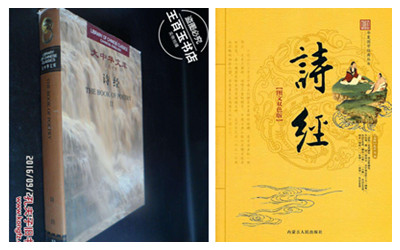 The Book of Poetry 《诗经》
The Book of Poetry 《诗经》
The Book of Poetry is the first anthology of verse in China. It compiles 305 poems created between the 11th century BC and the 6th century BC. The poems are divided into three sections: feng (songs), ya (odes and epics) and song(hymns). Song was used by the ruling class during their sacrifices to the gods and ancestors. ya has two parts-odes and hymns-both Sung at courts or banquets. ya includes odes to former heroes and satire on the Current politics of the day. Feng is the most important part of the anthology, and includes folksongs collected from 15 city states.
Chu Ci 《楚辞》
Chu Ci, or The Songs of the South, is another important poem 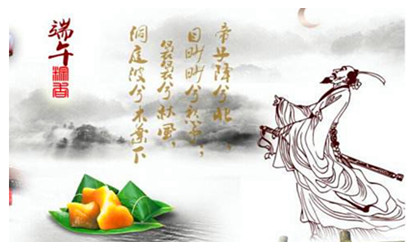 collection which appeared 300 years after The Classic of Odes. It was finished by Liu Xiang in Western Han Dynasty (206 BC - 24), through collecting works of the noted poet Qu Yuan and his disciples. Chu Ci, as the book's name indicates, is derived from the songs of the southern state Chu during the Warring States Period (476 BC - 221 BC).
collection which appeared 300 years after The Classic of Odes. It was finished by Liu Xiang in Western Han Dynasty (206 BC - 24), through collecting works of the noted poet Qu Yuan and his disciples. Chu Ci, as the book's name indicates, is derived from the songs of the southern state Chu during the Warring States Period (476 BC - 221 BC).
Of the great poets living in the 4th century BC, the most famous is Qu Yuan, born in the Kingdom of Chu (one of the seven states during the Warring States Period).Qu Yuan and his follower Song Yu established a new style of poetry-chu ci (literally, poetry of the south). Qu Yuan's major work was Li-Sao (Sorrow after Departure).
Chu ci developed more varied forms of poetry, freeing itself from four-character poetry, the form adopted in The Book of Poetry ,and developed three-character, four-character,five-character and seven-character poetry. In terms of artistic technique, chu ci absorbed the romantic attributes of myth and established the romantic style of Chinese literary creation.
Han Yuefu 《汉乐府》
Yuefu in Han Dynasty (206 BC - 220) is a creation of the lower class working people. Thus with quite natural and simple language, the contents are colorful in its expression of narrative and lyrics. Stories in the poems are vivid and lively, and employ the methods of figurative speech and personification. Despite their needy lives, people still cherished the stability of love, retained goodness and opposed evils and wars. The most prominent works are Mo Shang Sang, Zhan Cheng Nan (War in the South of Town), Orphan's Song, and A Pair of Peacocks Southeast Fly.
Chinese Poetry After Han Dynasty
The Book of Songs and Li Sao are regarded as classics in Chinese literary history. Later, different literary styles developed in subsequent dynasties. The Wei and Jin Dynasties (220-420) were a great period for the production of poetry. The poems written by Cao Cao, a statesman and man of letters of that time, and by his sons Cao Pi and Cai Zhi, are fervent and vigorous. They are outstanding forerunners of the progressive literature of later generations.
The Tang Dynasty gave birth to a great number of men of letters. The Complete Tang Poems is an anthology of more than 50,000 poems. Representative poets include Li Bai, Du Fu, and Bai Juyi, who are the pride of the Chinese people.
The Song Dynasty is well known for its ci (lyric). Song lyricists may be divided into two groups. The first, best represented by Liu Yong and Li Qingzhao, is known as the "gentle school"; the second, the "bold and unconstrained school," is best represented by Su Shi and Xin Qiji.
Famous Poets in Ancient China
 |
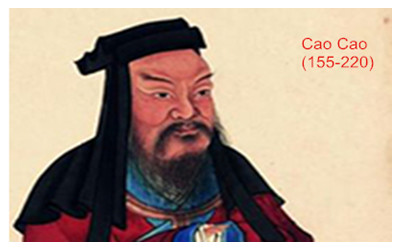 |
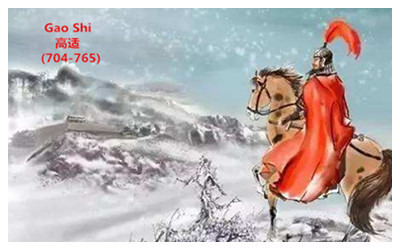 |
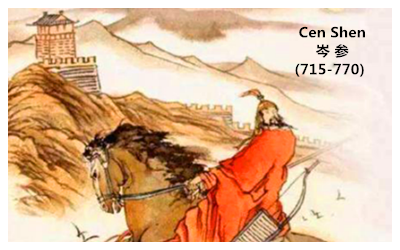 |
| Qu Yuan | Cao Cao | Gao Shi | Cen Shen |
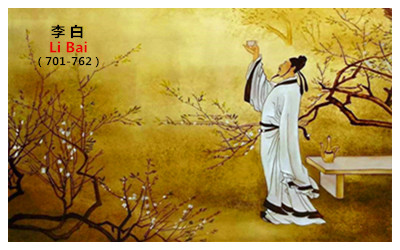 |
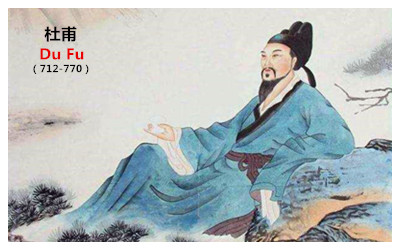 |
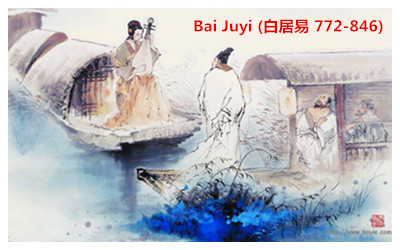 |
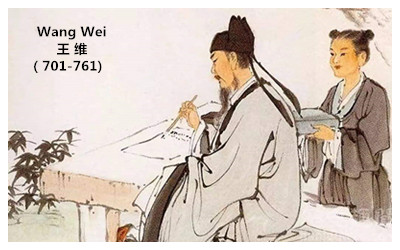 |
| Li Bai | Du Fu | Bai Juyi | Wang Wei |
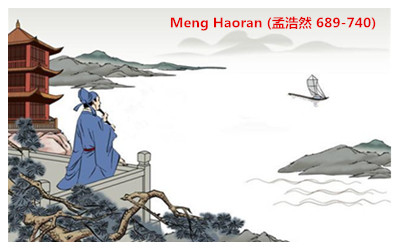 |
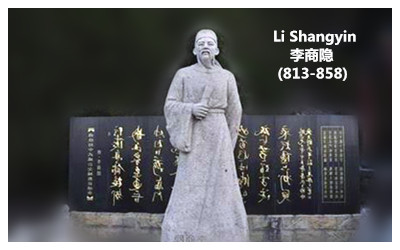 |
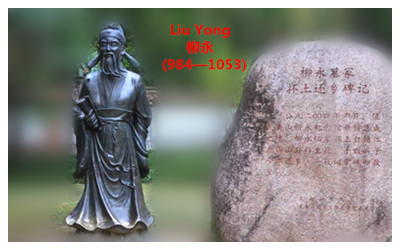 |
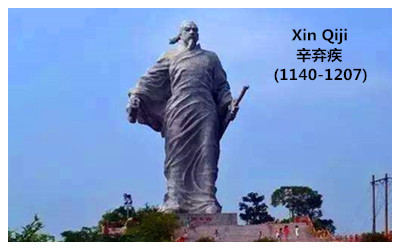 |
| Meng Haoram | Li Shangyin | Liu Yong | Xin Qiji |
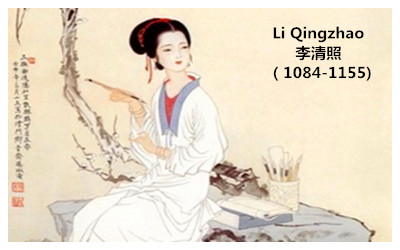 |
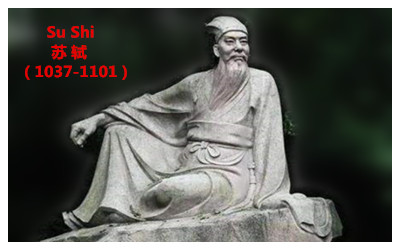 |
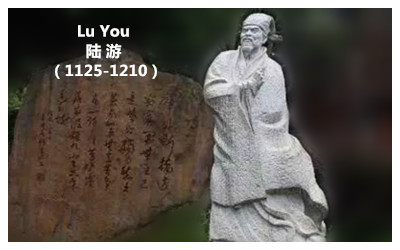 |
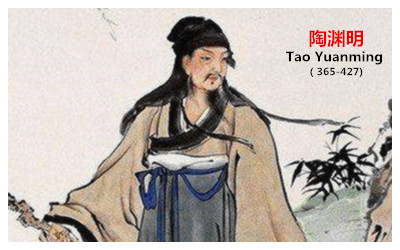 |
| Li Qingzhao | Su Shi | Lu You | Tao Yuanming |
 Ask Questions ?
Ask Questions ?